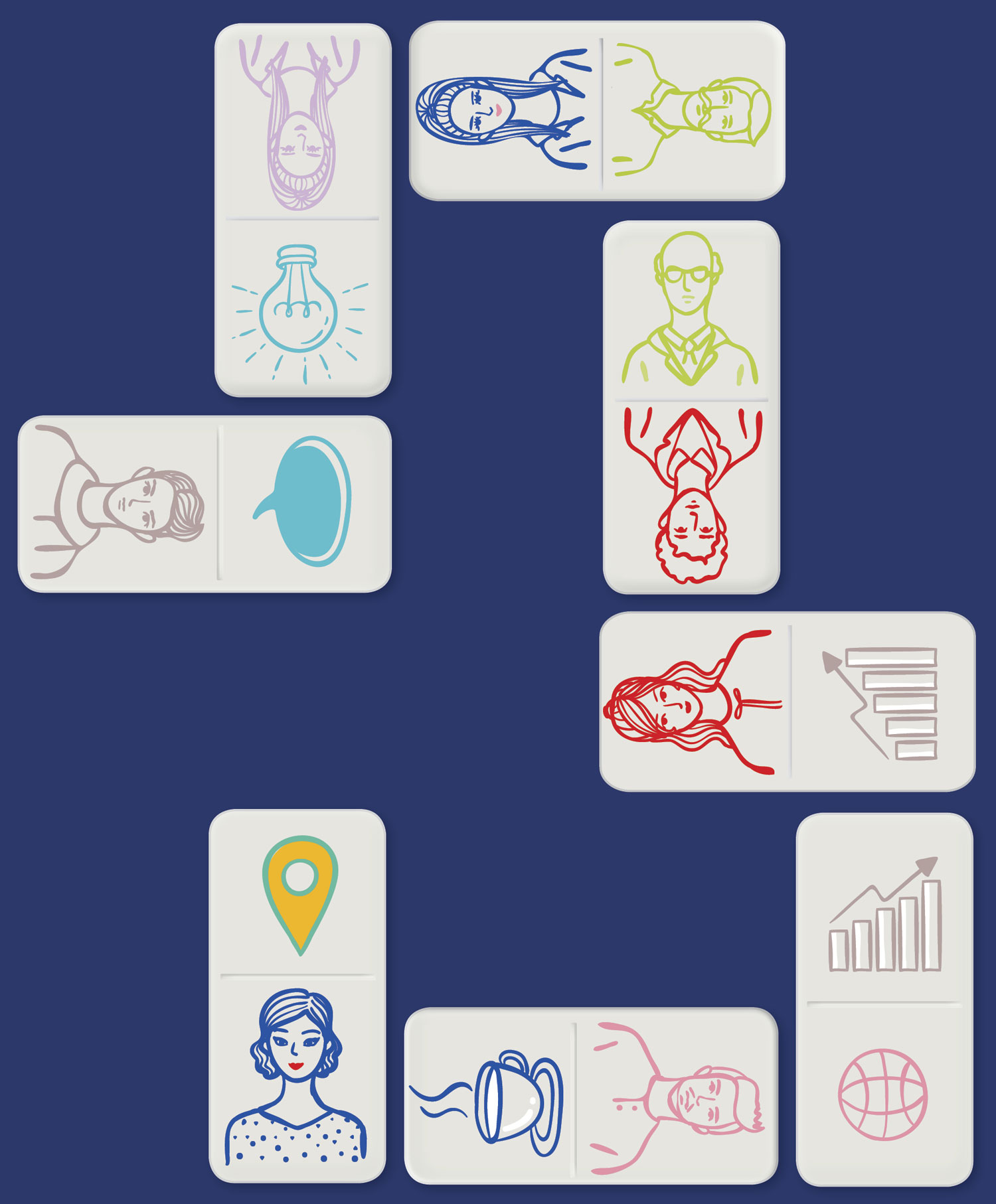 The University of São Paulo (USP) wants to stay in touch with its former students, so it’s been investing in its own online portal, Alumni USP. Alumni USP is a type of social network in which former undergraduate and graduate students can improve their networks of academic and professional contacts, reunite with colleagues, and learn about job and research opportunities, among other possibilities. USP’s intention is to use the platform to stay apprised of its former students’ progress in the job market, and to evaluate the effectiveness of its teaching strategies.
The University of São Paulo (USP) wants to stay in touch with its former students, so it’s been investing in its own online portal, Alumni USP. Alumni USP is a type of social network in which former undergraduate and graduate students can improve their networks of academic and professional contacts, reunite with colleagues, and learn about job and research opportunities, among other possibilities. USP’s intention is to use the platform to stay apprised of its former students’ progress in the job market, and to evaluate the effectiveness of its teaching strategies.
The platform began testing in 2013. In late 2016 it was opened to all undergraduate and graduate alumni who had studied at USP from the 1970s onward. There are currently about 21,000 alumni signed up, 7% of the 286,901 registered students who completed undergraduate and/or postgraduate (master’s and doctorate) degrees at the university during the last five decades.
Most are between 35 and 55 years of age. The Polytechnic School (POLI-USP) and the School of Philosophy, Languages and Literature, and Human Sciences (FFLCH-USP) are the units with the most active users: 2,967 and 2,936 alumni, respectively. “The numbers are still modest,” says dentist Marina Helena Gallottini of USP’s School of Dentistry, and coordinator of the Alumni USP Office responsible for the platform. “About 40% of users return to the portal after registering.” The goal, she says, is to double the number of participants during the first half of 2018 and encourage more frequent use of the network.
“We want to maintain an up-to-date communication channel with our graduates, using it as a management tool that will allow us to improve how we teach current students,” explains Marina. “We can use the project to identify weaknesses in coursework offered by the university in relation to the demands of the labor market.” She notes that teachers and researchers can also use information from alumni profiles on the platform for verifying the success of project grants provided by funding agencies. The idea is that information about the current status of alumni in academia or the labor market helps demonstrate the impact that funding agencies’ investments had in educating these professionals at the time they were students and received scholarships or participated in research projects.
We want to use the platform to evaluate our teaching strategies, says Marina Gallottini, coordinator of the USP Alumni Office.
The Alumni USP platform had its conception in iMinerva, a network created in 2010 by computer engineer Etienne Cartolano, with electrical engineer Fernando Josepetti Fonseca, who is a member of the International Relations Committee at POLI-USP. Their goal was to bring together engineering students from various public colleges that had participated in international exchanges during their undergraduate studies. A little more than two years after its creation, iMinerva had signed up approximately 3,000 former students. “The highly successful experience of the platform at POLI-USP came to the attention of the superintendent of the university’s Information Technology Department, João Eduardo Ferreira, from USP’s Institute of Mathematics and Statistics, who was interested in discussing how this tool could be expanded to the whole university,” says Fonseca, one of the members of the team responsible for the portal’s administration. Along with other students, they prepared a proposal and presented it to USP’s dean’s office, which found the idea interesting.
The developer of the USP Alumni software is iAlumni, a startup founded by former POLI-USP students, including Cartolano. The company is being incubated in the IT Department, where it receives development support. “We’re talking to investors and working on a business plan so that the software used on the USP Alumni platform will be adopted by other universities around the country,” Cartolano says.
In order to increase adoption by alumni, the researchers run publicity campaigns on social networks and through the university’s own communications media, in order to publicize the benefits that the platform offers. Today, former students who create an account on USP Alumni automatically receive a USP e-mail account, and gain access to the digital collection in the Integrated Library System, including the Periodicals Portal of the Coordination for the Improvement of Higher Education Personnel (CAPES).
This may be important for alumni who currently work in other teaching and research institutions in Brazil and abroad, who have lost the right to access the collections, says Fabiana Martins, a professor of undergraduate and postgraduate courses in dentistry at the University of Santo Amaro, in São Paulo.
 Julia Cherem Rodrigues with Freepick Images
Julia Cherem Rodrigues with Freepick Images
Martins completed her doctorate at the USP School of Dentistry in 2013, and since 2016 she has been registered with the USP Alumni system. “I use the platform to access the digital collection of journals in the Integrated Library System and to improve my network of contacts,” she says. She points out that the portal can be useful for students from other states and countries. “I recently got in touch with a Colombian colleague from my doctoral days through USP Alumni, and we’re discussing the possibility of a partnership in a research project,” she comments.
Another possibility is to bring recent graduates and experienced professionals together in the job market, according to the profiles and interests of each. Data is cross-referenced based on information entered by the users themselves, who are able to synchronize their profiles on the USP Alumni platform with their page on the professional network LinkedIn. “With this, the portal also proposes to be a kind of opportunity board, with announcements of job vacancies and business or research partnerships published by the alumni,” explains Fernando Fonseca.
According to attorney Maria Paula Dallari Bucci of the USP Law School, the platform may in the future become an informative element of the university’s evaluation system, providing data regarding the placement rate of USP students in the job market. “In addition, the platform seems promising to me because it allows students who have recently graduated to remain connected with the university,” she points out. “This may help to promote or facilitate the continuity of the research they developed during their studies,” says Bucci, who was a member of the commission tasked with proposing the new USP assessment system in 2016.
Connections between universities and alumni are gradually beginning to be appreciated more in Brazil
The concept of alumni is quite widespread in educational institutions abroad, especially in England and the United States, in universities such as Oxford and Harvard. In these countries, it is common for institutions to count on the financial support of former students who have excelled in their academic and professional careers. And graduates choose to maintain ties with their universities because of the prestige the institutions maintain in society, as well as in the labor market, reinforcing an identity that distinguishes them from other professionals. In Brazil, this connection is gradually beginning to be appreciated more.
Alumni associations or communities, especially in public educational institutions, are the best-known ways alumni from a university stay connected. Often, however, these entities are restricted to certain departments. Such is the case of the associations of former students of the USP medical and law schools. These initiatives arise from decisions by the alumni themselves, who administer them voluntarily.
USP is not the first to create a network to bring alumni together. Other educational institutions already have similar platforms. This is the case of the Getulio Vargas Foundation (FGV), whose Alumni EAESP platform offers a lifetime membership that allows free access to its facilities, library services, and job announcements at the career center, as well as discounts on books and courses. Another institution trying to stay connected to its graduates is the University of Campinas (UNICAMP), which launched the UNICAMP Alumni Network in 2011. The project, however, has not progressed. The university claims that problems involving the maintenance of the platform software made continuing the initiative unviable. UNICAMP plans to resume the project in 2018, but there is no scheduled launch date.
 Julia Cherem Rodrigues with Freepick Images
Julia Cherem Rodrigues with Freepick Images
São Paulo State University (UNESP) has had a platform of this type since the end of 2014, the Always UNESP Portal (http://bit.ly/sempreUnesp), the result of a project developed by the Office of the Associate Dean of Undergraduate Studies. “The idea came from the realization that UNESP trains professionals in different areas of knowledge, working in different contexts, who often lose contact with the university because of their daily activities,” says Marcelo Hashimoto, director of the Academic Technical Division of UNESP’s Bauru School of Sciences, and one of those responsible for the network’s administration. He says that maintaining the alumni connection helps the university evaluate its curricula based on its former students’ experiences in the job market. “Their participation in university projects can also be enriching.”
The UNESP platform has almost 10,000 registered alumni, out of over 50,000 who have graduated. By registering on the portal, users automatically gain access to a database of available internships and employment the university maintains, and receive discounts at the UNESP Publishing bookstore, as well as on courses offered by the university on campus and online. “For the university,” says Hashimoto, “it’s good to have the feedback and learn how our former students have developed professionally after they graduate. This helps us evaluate the process of educating our students.”
Republish